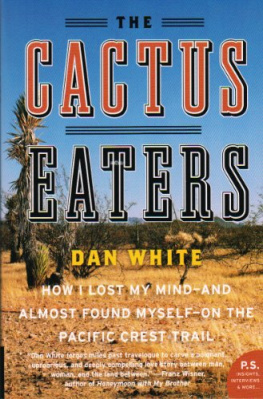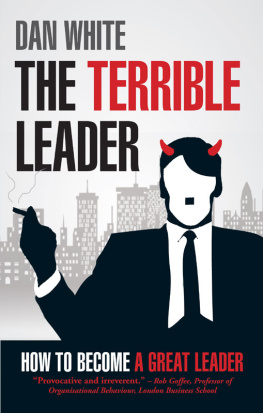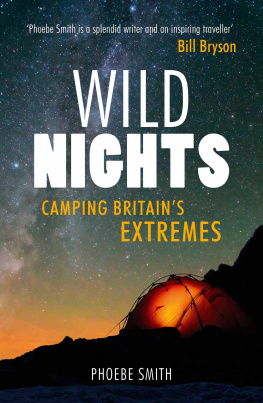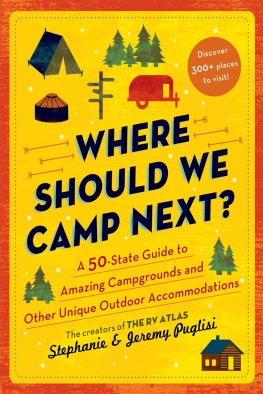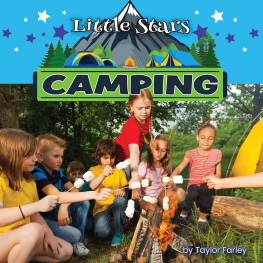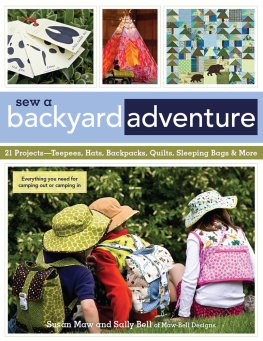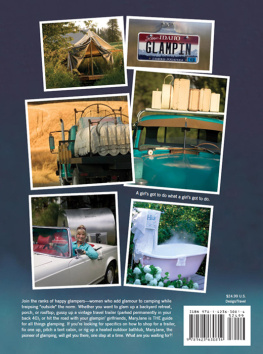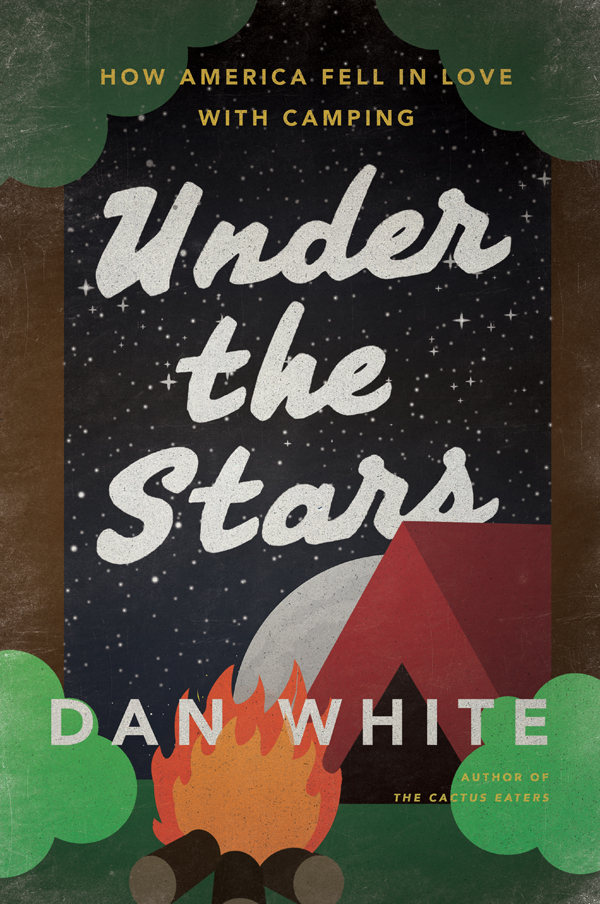Contents
Guide

The author and publisher have provided this e-book to you for your personal use only. You may not make this e-book publicly available in any way. Copyright infringement is against the law. If you believe the copy of this e-book you are reading infringes on the authors copyright, please notify the publisher at: us.macmillanusa.com/piracy.
To Julianna and Amy for making this book possible, and to my dear father, Victor White (19262016), who died just before the publication of this book. He was my first camping hero and a major influence on my creative life. May his memory be a blessing to everyone who knew him and loved him.
What though? May there not come one glorious day in the weary year when we may cast aside every grief and every separate care and invite the soul to a day of rest? And in the future, when the days of trouble come, as they will come, I shall remember that grand day of rest, and the abundance of trout and bass wherewith I was comforted.
George Washington Sears, aka Nessmuk, 1883
I heard two noises coming from two separate areas of space over there. One of them could have been an owl, but the other one sounded like a cackling.
Joshua Leonard, The Blair Witch Project , 1999
I go to the wilderness to kick the man-world out of me.
Colin Fletcher
I love camping. I hate camping. I cant seem to stop. In case you havent noticed, campouts hardly ever go the way you want them to go. It doesnt matter if youre glamping or backpacking, on a guided exploration or alone. Chaos finds a way. In the course of writing this book, a hike through the history of American camping from the nineteenth century onward, I have been treated for chilblains, stung by evil wasps, set upon by marmots, chomped on by a large and stupid bird, and knocked unconscious by a wooden plank. That hasnt stopped me from returning to the woods for more doses of enchantment and abuse. Its the fissure, the derailment, the surprise that gives each campout its flavor and character. I like to think that Leonard Cohen was talking about camping when he said that everything is cracked but thats how the light gets in.
If we want stability and uneventfulness on our vacations, Microtel awaits us. But when was the last time you struck up a meaningful conversation at the Hampton Inn? Ive had only one memorable interaction with strangers in a hotel, and it was disturbing. I was in Sioux Falls, South Dakota, at the Days Inn, with my wife, Amy. We had just checked in. When I put the key card in the door, I was preoccupied, and so was my room. When I walked inside, a big-boned couple was making love in the queen bed Id paid for. The man got up, put on a towel, smiled, escorted me from the room, and kicked the door in my face. Aside from that, I cannot recall any of the people Ive met in low-priced lodging chains, but I can remember a thousand faces and stories from my campouts over the years.
I have camped six hundred days and nights so far. Ive passed a pleasant evening in a friends backyard in Santa Cruz and watched a baby skunk climb a woven wire fence protecting a tomato plant. Ive slept on the oxbows of wild rivers in the Sierra Nevada and on a tree-lined traffic divider near Skykomish, Washington, during my backpacking journey on the Pacific Crest Trail. Ive watched the sun set on the North Cascades, set up a tent on a mushy lawn behind an Iowa truck stop, and passed the night on a coastal bluff in Point Reyes, where I threw pebbles and sand at ungovernable raccoons. Ive felt everything when I camped: terror, safety, contentment, danger, lust, derangement, discomfort, gratitude, ingratitude, cowardice, heroism, hedonism, boredom, frustration, gluttony, wisdom, self-pity, and extreme stupidity, sometimes all in the same trip. For better and worse, camping shows you who you are. With camping you cannot hide. William James Stillman, who camped in the Adirondacks in 1858 as part of an illustrious group that included Ralph Waldo Emerson and Louis Agassiz, wrote about his campmates dropping their disguises in their isolated conclave out on Follensby Pond. Conventions faded out, masks became transparent, and for good or for ill the man stood naked before the questioning eye,pure personality I gathered more insight into the character of my companions in our greener Arden, in the two or three weeks meetings of the club, than all our lives in the city could have given me.
This book is about a Victorian passion that got out of hand. Like croquet, polka dancing, and scrapbooking, recreational camping was a nineteenth-century fad that refused to die. Optional or pleasure camping is a recent and quirky takeoff on the mandatory camping that human beings have been doing ever since theyve lived on earth. The first Americans fashioned comfortable foursquare dwellings from wood, bark, leaves, grass, reeds, earth, snow, stone, skin, and bones. I have to be careful not to compare their way of life to camping as we know it now. For one, they did not have large, sulfurous, malarial cities to drive them ever deeper into the forest. They saw no separation between their daily lives and the outside. Even wilderness as we know it now, the notion that you have to head way out there to some remote land to encounter the real nature, would have made little sense to them.
The Euro-Caucasians who started building settlements in North America in the early seventeenth century would have had a hard time recognizing the camping we do today. So would the gold rushers and the pioneers. As Cindy Aron wrote in her book Working at Play : A History of Vacations in the United States , The earliest American campers were not on vacation The wilderness, for most such people, held little charm. It represented hardship, strenuous labor, and dangera place to be traversed, subdued, and settled. Granted, some forms of camping are closer to the original spirit of survival camping than others, but if were choosing whether to camp, it still falls into the realm of lifestyle or recreational camping. Just like pick your own strawberries, pleasure camping is a playful and indulgent twist on something that was not meant to be fun in its original incarnation.
Recreational camping is not an invention like the dynamo or the incandescent lightbulb. Its a product of gradual refinement and much reconsideration, not just of camping practices but also of the animating philosophies behind them. Todays camping is the end result of changing attitudes toward wilderness as a place of mischief, devilry, and derangement in colonial times to a place of release, relaxation, or even worship. An estimated fifty million people camp every year in the United States. When contemplating such gigantic numbers, I had to wonder about the roots of this pastime, about the people who first experimented with voluntary camping, when it became popular, and how it changed or did not change with time. In the course of this journey, I began to notice that campers, including me, tended to dip their buckets into the same reservoir of tropes and traditions, unconsciously acting out the history of camping. A few brilliant, charismatic, and troubled young men with bold ideas and extravagant facial hair, and a few brave women who ventured into the forests and mountains in spite of restrictive clothing, double standards, and widespread prejudices, influenced the camping we practice today.
If youve camped because you wanted a more strenuous life to build up your character and prove something about yourself; or slept in a three-sided lean-to facing a cook fire; or spent thousands of dollars to stay in a luxury tent with a parquet floor, kitchen, and bathroom along with an optional tent butler who roasted your smores for you; or if youve had ecstatic visions in forests, or gone on value added camping trips involving yoga, lectures, site restorations, and trash pickups, you owe something to the people who launched recreational camping nearly two centuries ago.


